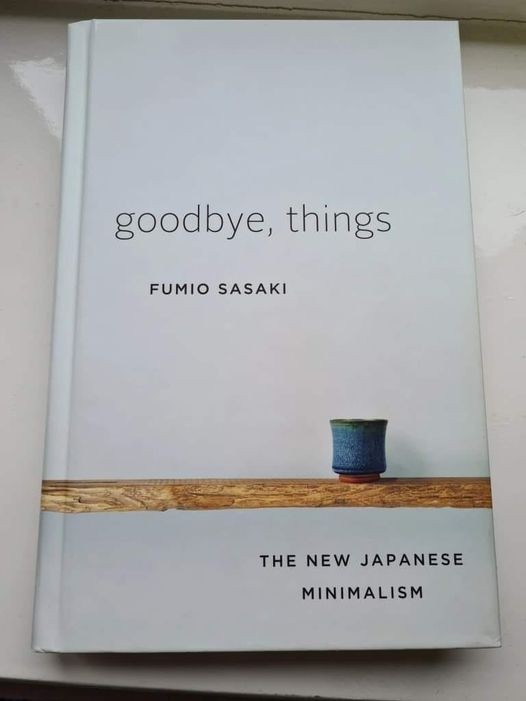7 Powerful Lessons from "Goodbye, Things: The New Japanese Minimalism" by Fumio Sasaki:

7 Powerful Lessons from "Goodbye, Things: The New Japanese Minimalism" by Fumio Sasaki:
1. Happiness Comes from Within, Not Possessions: The book argues that the pursuit of material possessions often leads to stress, anxiety, and a sense of emptiness. True happiness comes from cultivating meaningful relationships, pursuing passions, and living in alignment with your values.
2. Decluttering is a Liberating Experience: Letting go of excess belongings can be a deeply liberating experience. It can free up your physical space, mental energy, and emotional baggage. This allows you to focus on what truly matters and live a lighter, more fulfilling life.
3. Less is More: Sasaki advocates for a minimalist approach to life, suggesting that having less paradoxically leads to more. With fewer possessions, you have more time, energy, and freedom to pursue your passions and experience life to the fullest.
4. Curate Your Space, Reflect Your Values: The book encourages you to surround yourself with only objects that bring you joy, utility, or beauty. This creates a space that reflects your values and priorities, fostering a sense of peace and well-being.
5. Gratitude for What You Have: By focusing on the things you own and appreciate, rather than what you lack, you cultivate a sense of gratitude and contentment. This shift in perspective leads to a more positive and fulfilling life.
6. Quality over Quantity: The book encourages prioritizing quality over quantity when acquiring possessions. Invest in fewer, well-made items that you truly cherish and use regularly, rather than accumulating cheap, disposable goods.
7. Minimalism is a Journey, Not a Destination: Sasaki emphasizes that minimalism is not about achieving a perfect state of emptiness. It's a continuous process of decluttering, evaluating, and refining your relationship with your possessions. The goal is to live with intention and purpose, focusing on what truly matters to you.
Letting go of things can be challenging, but the rewards are significant. By embracing minimalism, you can create a life that is more intentional, fulfilling, and free from the burdens of material possessions.










